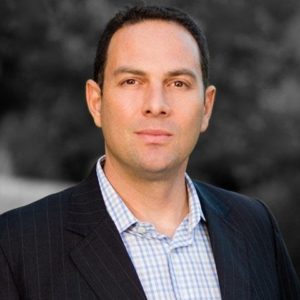A Prescription for Surgical Practice Staffing Shortages | SurgiSnacks Episode 10
Listen On :
Join Justin Rockman, VP of Business Development at Surgimate, in this episode of SurgiSnacks as he dives into the world of surgical practice staffing shortages with special guest Jennifer Monroe, Director of Patient Financial Services from OrthoTennessee. In this bite-sized session, discover the challenges and solutions in hiring during the post-COVID era, strategies to attract top-notch candidates, and insights into creating a compelling workplace culture.
Related content:
Top 4 Ways to Appreciate Your Surgical Coordinators
Healthcare Workforce Shortage Solutions for Surgical Practices
Join us for SurgiSnacks, the podcast that delivers bite-sized insights into the world of surgical coordination. Hosted by Al & Justin of Surgimate, the surgical coordination software company, each episode features practical tips and best practices for streamlining your surgical practice, enhancing your profitability, and improving the patient experience. Subscribe on YouTube, Spotify, or Apple Podcasts.
Hi. Welcome back to another episode of SurgiSnacks.
My name is Justin Rockman and I’m
the VP of Business Development at Surgimate.
If you like to geek out about the business of
surgical practices, then you’ve come to the right place.
Here on SurgiSnacks, our goal is to provide
you with bite-sized sessions, about ten minutes each.
You can pop into your ear during a run or in
the shower or in the car to give you some new
and innovative ideas when it comes to running your surgical practice.
My fearless co-host, Al Norweb won’t be with me
today, but I’m very excited to be with you,
Jennifer Monroe, Director of Patient
Financial Services from OrthoTennessee.
Welcome, Jennifer.
Thanks so much.
I’m thrilled to be with you today, too.
Excellent. Thank you.
So, Jennifer, for those of our audience who might
not have had the pleasure of your acquaintance, could
you please share just a brief introduction about yourself?
Sure.
I’ve worked in the revenue cycle for
about 30 years, and the last five
years have been here at OrthoTennessee.
And I also am a little bit of a revenue cycle geek.
Love to focus on how do we create
great processes and move claims through the system
and get them paid in full.
That’s the goal.
And I became interested in Surgimate because our practice
was already using it when I came on board
here and through talking to the Surgimate reps at
various conferences and through different interactions, it became a
common interest between us that my revenue cycle team
was very fond of Surgimate.
We have a number of locations and practices,
and most use Surgimate and some are smaller
and have chosen a different option.
So what was appealing is why was that a difference?
How does that make a difference, even
in revenue cycle, as opposed to only
for surgery schedulers and physicians?
So, Jennifer, you may not know that one
of our traditions here on the show is
to select a snack that represents the topic.
Now, when we met at a conference just a few
weeks a few months ago, I asked you, what is
the number one issue that impacts surgical practices today?
And you said one word, staffing.
So today’s focus is on the staffing
shortages that are challenging practices everywhere.
So to align with that theme, we’ve
chosen potato chips as our symbolic snack,
reflecting the staffing “crunch” across the industry.
Today, I have two options here.
I have my scorching and my salt and vinegar,
which we can enjoy a little bit later on.
Okay, sounds great.
Okay, so, Jennifer, just to start off,
what are some of the challenges of
hiring today in the post-COVID period?
Oh goodness.
It’s really almost all aspects.
It starts with a lot of individuals
are using AI technology or different platforms
to apply for jobs on their behalf.
And when they hear from a recruiter or someone
in our office, they can’t always even recall exactly
what organization this is or will tell us
they didn’t even realize they applied for the job.
So there seems to be an effect where people
are just blasting their resume out and are not
necessarily applying very intentionally to certain positions.
So that becomes a time issue for us and
frustrating for the caller and for the individual.
Another factor is when we call folks, and I
don’t blame them, I’m the same way, they don’t
recognize the number so they don’t answer.
And that can result in a lot of
back and forth calling just to get them
on the phone for an initial phone screening.
So, that’s one issue. Secondary to that,
once they are interested in talking with us, we run into
a lot of questions about pay, about whether the position offers
a hybrid option or a work from home option.
And so we’ve shifted to those who are applying
for jobs having all of their list of requests
and demands, and it seems that the employees are
much more in demand than the jobs are now,
so that’s created a little bit
of an upside-down situation.
So those challenges really are quite significant.
Has that meant that you’ve changed
your approach during the hiring process?
Prior to COVID, you would take a particular way
in which you would go through hiring, but now
with things to attract candidates and sell yourselves more
as an employer, has that meant that you’ve changed
your approach in that process?
Yes, absolutely.
I’ve said a number of times that we really have to
think about what are we doing to make this job appealing.
We need the potential candidates to be interested in
what we do and to know that they’re going
to have good managerial support to understand in advance
what the job looks like day-to-day.
So, we’ve done several things as an organization.
We have increased our orientation day to be a full day.
And it’s great because we can reassure them from
the start that this is a great and strong
organization, that they’re going to have good leadership throughout.
Our CEO talks to every orientation group,
which we provide twice a month.
And that was a big change.
Previously we would offer orientation on an irregular schedule,
and now it’s published a year in advance.
You know what dates you
have available to start individuals.
And so that kind of structure, I think
even from the start, recognizing that every conversation
with the candidate is part of the interview
process and the selling process and them getting
an impression of the organization.
They know that we’re structured and we have a plan.
So, that’s been one benefit is the day-long orientation.
They’re hearing from the full C-suite, they’re getting
added into all of the software apps they need.
Our it team is involved and they really leave
that day with a lot of confidence that they’re
going to be cared for as an employee.
Wow, I love that.
That day-long orientation sounds really excellent.
You touched on this a little bit earlier with regards
to no-show rates and companies experiencing for all manner
of reasons, whether or not it’s because AI has impacted
the number of candidates that you come or people not
picking up off the phone, but what solutions have you
come up with to minimize that risk of you spending
a lot of time and effort to schedule candidates in
and then they just don’t show? Yes.
So one thing that we did specific to our
department is we created a front and back flyer,
essentially about each of our positions that gives them
a lot of FAQ, frequently asked questions about the
role, about what the revenue cycle team does, how
do we fit into this larger healthcare organization.
And one of my favorite features is that
it talks about a day in the life.
So a day in the life of a payment poster is
very different than a day in the life of someone who
works in patient collections or in the billing team.
And those titles can be vague and they can
mean a lot of different things across various organizations.
So we want them to know, here’s what
you actually would be doing throughout your day.
And it helps them commit more to know if
it’s an accurate role that they’re interested in.
After we send them that, and we have
the initial phone screening, we’re bringing in each
candidate and interviewing them for two roles.
We will tell them we have openings in these
various departments, and it sounds like you originally applied
for one role, but we think you could be
a great fit for this other one.
So we’re going to invite two supervisors and sit
down with you and really have a conversation.
And on that flyer that we send to them with
all of the details, it explains exactly where they need
to show up, which door to enter, where to park
and what to expect, what we expect them to wear.
They don’t need to be overdressed.
And what are some sample
or potential interview questions?
We’re not giving them the full list, but we’re
saying, here are some of the things that you
might want to be prepared to answer.
And I know that that might
be counter to previous interview culture.
People would try to sort of
catch people not knowing a thing.
And what we want to do is have them come in
as confident as possible to reduce that no show rate.
And that has helped.
Wow, that so interesting.
So you found a great candidate for one or maybe
both positions and now you want to hire them.
How do you onboard a new member to your team?
Has that changed?
What does your current orientation plan
look like at the practice?
So they will start with the day
long orientation to the organization, which means
they’re always starting on a Tuesday.
And when they actually show up in the office, we make
sure that we have a really clean desk space for them.
We have new fresh office supplies.
They’re going to be in office and we make
sure that we have a schedule and we share
that with them, again, providing them reassurance.
They’re in a new place, they’re meeting new people.
They don’t want to be uncomfortable on day one.
They want to feel really cared for.
So, we’ve shifted our focus to be more human
and people-focused and tried to show empathy to
what it’s like to be a new hire.
And unfortunately, people are changing jobs
more than they used to.
So, for perhaps people of an older generation,
they might have had a first day of
work five times in their life.
We are now working with individuals who have
had a first day of work many, many
times, and we want to stand out.
So, the transparency is greatly important and improvements
that you’ve made to the hiring process,
but there still is a question about how
to actually attract fantastic candidates in this market
today. You mentioned that the balance has
shifted and it’s become an employees’ market.
What have you done at OrthoTennessee to ensure that
you can stay competitive, not just only within healthcare, but
competing with other brands within the area so that you
can target the best talent out there.
We have our recruiter that works for us using
a lot of different platforms and reaching out.
Our HR team attends a lot of job fairs.
We’re fortunate to be in an area where we have
a number of counties that surround us so they can
go to different counties’ job fairs, and that’s something that’s
really stepped up the last two years.
They’re very attuned to the local universities and
community colleges, different schools, and just really putting
ourselves out there in front of people who
may be able to refer employees or the
actual employees themselves that are searching.
I don’t know that we’re doing anything tremendously different than
others are doing, except being a very positive presence and
letting them know that we have lots of different opportunities
across not only our clinics, but our surgery centers, and
that we can find a fit for anyone that’s really
interested in a new opportunity.
So it’s not just about who you are,
it’s also about what is it that you
can offer within the framework of the organization.
And attracting great talent is so critical.
Often people say, well, just pay more.
And that way you can bring more
people in, which can be difficult in
certain industries, healthcare being one of them.
How have you approached that problem at the practice?
So, we’re doing the best we
can, like lots of other groups.
And I think sometimes there is a lack of awareness about
what does it cost to add a dollar an hour or
$2 an hour across the course of the year?
It’s quite a bit, and we have to make
our budgets in advance and adhere to those.
So, what we’re also looking for are ways that
we can use technology to make the job easier.
And I spend a lot of time talking
with my team about what’s in your way,
what’s frustrating you, what are your repetitive tasks?
So, we’ve done some things to add
some automation that has been very beneficial.
And at first, people were concerned, “Oh my goodness,
is this going to take our jobs away?”
And now they recognize, no, this is going to
help to do the parts of our job that
we don’t love so much that are a little
bit just monotonous, that don’t require deep thought.
And we’re focused on using the brain power of our
great staff to really work on the harder problems.
Wow, that’s amazing.
And using technology to leverage employees and also make
a change to the corporate culture and creating that
new and compelling culture is really so critical.
Is any advice which you can give to
other practices on how you can create a
compelling and innovative culture within the organization?
Yes, I actually could speak about
this for quite a while.
We have a new CEO that’s been in place for a
year, but has been with our organization a long time.
And he had heard several years ago about a
program called Culture By Design that we’ve implemented at
OrthoTennessee and it’s really been fantastic.
We have 26 behavioral standards that we
have agreed to adhere to, and these
are introduced during that day-long orientation.
Everyone is very clear on what’s expected, and
we call them the play of the week.
Other organizations might call them something else.
So each week we have a particular play of the week
we’re focused on, and it is a direct statement of a
particular behavior. It’s very clear in black and white whether our
staff are living up to this or not.
But we open each meeting with the play of
the week and give examples of what we’ve seen.
One of my favorites is assume positive intent.
And so we’ll talk with everyone that we’re in a
meeting with about what does that mean to you?
Or where have you seen this happen?
Or where have you exercised this in your own work?
And so we’re really integrating
that into the daily workflow.
And we kick off our week each Monday morning
with a video from someone in the organization.
Right now it’s our CFO who’s doing the cycle of 26,
and they tell a story that relates to it, and it’s
a really great way to keep us focused on all the
behaviors and actions that make a great team.
Wow. So, I’m going to take you up on that, but
we’re not going to do it at the beginning.
We’ll do at the end.
Not a play of the week.
We’re going to do a play of the SurgiSnack.
And please, is there any other last-minute advice
or recommendations you could give to other companies in
a similar position to you looking to attract great
candidates or improve their hiring process?
You know, I think the main thing to do is to take steps.
You can’t do everything at once to make
everything better, especially when you’re short-staffed.
It is an incredible challenge right now.
And the need for healthcare did not diminish
with COVID. If anything, we’re aware that it increased.
So, we had a period of time that people perhaps
were not getting surgeries, and then that really resumed.
And we’ve been catching up on that for
a while because COVID comes and goes and
people have to cancel surgeries sometimes.
I would say take some steps.
Make sure that you’re engaged
with your professional organizations.
You’re attending conferences, you’re listening to podcasts, you’re
using technology and figure out what are the
things that are effective in your particular area.
Jennifer, thank you so very much for your time today.
It’s been such a pleasure speaking to you, and
I look forward to seeing you at the next
conference and coming on-site and working with you
and seeing this fantastic, new, innovative culture you have
with all of your fantastic, amazing staff.
All right, thanks, Justin. It’s been a pleasure.
MEET THE HOSTS

Justin Rockman
VP of Business Development
The industry expert on surgical scheduling workflow optimization, Justin consults for surgical practices and lectures nationwide. Justin joined Surgimate after 8 years as a founding member of an IBM-acquired startup. A devoted husband and father of four, ultra-marathoner and lover of the outdoors, Justin studied law at Monash University and earned his MBA from Bar Ilan University.

Al Norweb
Chief Growth Officer
Al Norweb is focused on everything and anything that brings the power of Surgimate to more surgical practices. Al mostly recently served as the General Manager of Orthopedics for a leading EHR and practice management software company where he oversaw a near quadrupling of their book of business. Based in Miami, FL, Al holds an MBA from Harvard Business School, an MPA from Harvard Kennedy School, and a BS in Economics from Duke University.
be our guest?
Would you like to be part of our next podcast episode? If so please contact us for more details.










Jennifer Monroe, MBA, CPC, CPPM, CRCR, is the Director of Patient Financial Services at OrthoTennessee. She has redefined her culture with her focus on staffing, business improvement, and practice efficiency.
Jennifer Monroe Director of Patient Financial Services, OrthoTennessee